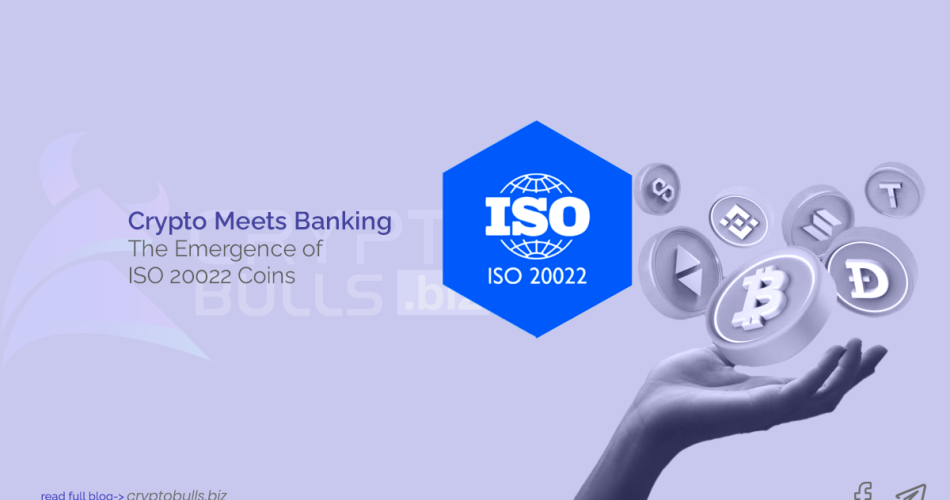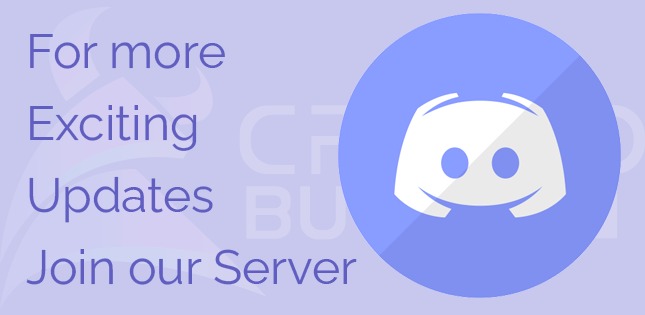Crypto Meets Banking: The Emergence of ISO 20022 Coins
In the thrilling world of digital finance, a new player has entered the arena – the ISO 20022 coins. These aren’t your typical cryptocurrencies; they’re designed to ‘speak’ the language of banks, paving the way for seamless integration with existing financial services. This blog post invites you on an adventure into the fascinating realm of ISO 20022 coins, their inception, and their potential to transform the financial transaction landscape. So, get ready for an exhilarating exploration of how these pioneering digital currencies are creating a harmonious fusion between the traditional and digital spheres of finance.
What Are ISO 20022 Coins?
ISO 20022 coins are a type of digital money, like Bitcoin or Ethereum. But what makes them special is that they follow a set of rules called ISO 20022. This is a standard, or a system, that banks use to talk to each other electronically. It’s like a common language for banks, managed by an organization called SWIFT.
When a digital currency follows this standard, it means it can ‘speak’ this common language. This makes it easier for these coins to be used in the banking world, especially when it comes to moving money across borders. So, in simple terms, ISO 20022 coins are digital currencies that can ‘talk’ to banks in a language they understand. This makes them pretty unique in the world of cryptocurrencies!
History of ISO 20022 Coins
ISO 20022 coins are digital currencies that follow a set of rules, or a standard, that banks use to communicate electronically. This standard, managed by SWIFT, allows these coins to ‘speak’ the same language as banks, making them more compatible with the banking world.
The ISO 20022 standard was developed in the early 2000s to replace an older system used by SWIFT. The transition to this new system has been happening in stages across the globe. For cryptocurrencies, adopting this standard is a significant step towards integrating with traditional finance, helping to bridge the gap between the conventional financial system and the new digital economy.
Why are ISO 20022 Coins Important?
ISO 20022 coins are essential for various reasons. They provide a standardized communication system, ensuring smoother integration with existing banking and financial services. This standard opens up opportunities for cryptocurrencies like XRP and stellar lumens (XLM) to play vital roles in global financial settlements. Moreover, it may pave the way for large-cap cryptocurrencies like bitcoin (BTC) and ether (ETH) to be integrated into the SWIFT system, altering how crypto and fiat currencies coexist in the future of the digital economy.
How Do ISO 20022 Coins Work?
ISO 20022 provides a set of rules and a central dictionary that facilitates rich data exchange, including modelling methodology and XML design rules. Coins that comply with ISO 20022 must adhere to these specific standards. For instance, Ripple’s poll-based consensus method complies with the standard, allowing nearly instantaneous consensus while retaining network decentralization. This increased speed and reduced transaction cost could lead to substantial synergy between XRP and SWIFT, increasing bullish sentiment among XRP holders.
Current State of ISO 20022 Adoption
The ISO 20022 standard is gaining traction across the globe, with a growing number of payment, clearing, and settlement systems adopting it. This trend is expected to continue and even accelerate in the near future.
Over 70 countries, including financial powerhouses like Switzerland, China, India, and Japan, have already incorporated ISO 20022 into their payment systems.
On the institutional front, major financial entities such as Citi, HSBC, and Deutsche Bank have successfully implemented ISO 20022 in their operations. Furthermore, several instant payment schemes and wire payment networks, including Fedwire, SWIFT, and Lynx, have announced plans to fully transition to these standards by the end of 2025.
Case Studies
let’s look at some case studies of cryptocurrencies that have adopted the ISO 20022 standard
Ripple (XRP)
Ripple has been a pioneer in embracing the ISO 20022 banking standard. As a member of the ISO 20022 committee, Ripple is not just a participant but a contributor to this global banking language. This strategic move has the potential to connect all of the world’s banks and financial service companies, thereby enhancing Ripple’s fundamental value.
Stellar (XLM)
Stellar’s journey mirrors that of Ripple in many ways. With its focus on cross-border remittances, Stellar’s compliance with ISO 20022 places it in a prime position for seamless integration with mainstream finance.
Algorand (ALGO)
Algorand’s adoption of ISO 20022 is a strategic move to enhance its compatibility with traditional financial systems. This facilitates secure information exchange between different networks, thereby increasing Algorand’s appeal to financial institutions.
IOTA
IOTA’s integration with ISO 20022 aims to improve the interoperability of its Tangle protocol with existing financial systems. This enables IOTA to facilitate secure and efficient machine-to-machine (M2M) payments and data transfers, thereby expanding its use cases.
Hedera Hashgraph (HBAR)
Hedera Hashgraph’s HBAR token aligns with ISO 20022 standards to enhance interoperability. Its focus on fast, secure, and efficient transactions makes it a strong contender in the crypto space.
Quant (QNT)
Quant’s adoption of ISO 20022 is a testament to its commitment to bridging the gap between cryptocurrencies and traditional finance. By facilitating secure information exchange between different networks, Quant is positioning itself as a key player in the financial ecosystem.
XDC Network
The XDC Protocol’s compliance with ISO 20022 makes it a preferred choice for core banking systems, ERP systems, and SWIFT systems. Its higher interoperability with legacy systems underscores its potential in the evolving financial landscape.
Impact on Investors and Traders
The adoption of ISO 20022 could have several impacts on investors and traders:
- Greater Market Stability: ISO 20022 can reduce misinterpretation issues, leading to lower transaction costs and improved liquidity management.
- Improved Risk Management: The standard can eliminate many false positives in transaction monitoring, saving resources and improving risk analysis.
- New Investment Opportunities: As financial institutions transition to ISO 20022, they may develop new products and services, potentially creating new asset classes or investment strategies.
- Enhanced Due Diligence: The richer data provided by ISO 20022 can improve due diligence processes, leading to more informed investment decisions.
- Increased Efficiency: Improved data quality, enhanced processing, and higher automation can lead to faster and more efficient trading.
Advantages and Disadvantages of ISO 20022 Coins
Advantages
- ISO 20022’s structured fields enable faster and more accurate validation.
- Reduces processing time by looking for specific information in defined fields.
- Standardizing formats reduces risk and cost overhead.
- Greater data can lead to improved product development that better meets customer needs.
- Specific data points within the message can help identify potentially fraudulent transactions.
Disadvantages
- Some banks may lack the technology to migrate to the standard, leading to additional costs.
- Truncation of the message fields may result in the loss of important information, affecting areas like financial crime detection.
The Bottom Line
In essence, ISO 20022 coins are a transformative force in the financial world, bridging the gap between traditional banking systems and the dynamic realm of cryptocurrencies. They offer numerous benefits such as enhanced processing speed, reduced fraud, and a deeper understanding of customer behaviour. However, their successful integration hinges on overcoming technological hurdles and fully harnessing the rich data they provide.
As we look to the future, the prospects for ISO 20022 coins are bright. As the standard continues to evolve and find its footing in the ever-changing financial ecosystem, the full potential of these coins is yet to be unveiled. This evolution represents not just a shift in technology, but a leap towards a more interconnected and efficient global financial infrastructure.
Do you want to learn more about web3, blockchain, and crypto? Do you want to chat with other crypto enthusiasts, ask questions, share tips, and participate in events and giveaways? Do you want to access exclusive content, such as analysis, news, blogs, and signals on the decentralized world? If you answered yes to any of these questions, then you need to join our Discord server today. CryptoBulls is the ultimate platform for web3, blockchain, and crypto enthusiasts, where you can find everything you need to succeed in the crypto space. Don’t miss this opportunity to join a friendly and supportive community of crypto lovers. Click here to join now.


